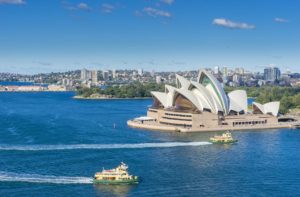Immigration updates for Australia, China, Malaysia and more
Asia-Pacific
Australia: Pathway to Permanent Residence
New legislation outlines the pathway to permanent residency for certain ‘Short-Term’ Subclass 482 Temporary Skills Shortage visa holders. From July 1, 2022, 482 Visa Holders in the Short-Term Skill Shortage Stream can transition to a 186 permanent visa provided that, the following criteria is met:
- They held or had applied for a 457-visa pre-18 April 2017 (referred to as “legacy 457 holders”).
- They were in Australia for at least 12 months (cumulatively) between Feb 1, 2020, and December 14, 2021.
Other key criteria includes:
- Being under 45 years old unless an exemption applies
- Having Competent Level English language ability.
- Having worked for their nominating employer for at least three years in the four years before applying (or two years in the three years before applying for legacy 457 holders).
- Having a job offer from your sponsoring employer for a position that is available for at least two years following PR approval.
- All family members meeting health and character criteria.
This summary was prepared using information obtained from the Australian Government.
China: Entry requirements
The Chinese government has revised the entry requirements for passengers planning to travel to China. Detailed guidelines on the testing requirements, standard HDC requirements and more. for each country can be found here.
This summary was prepared using information obtained from the Chinese Embassies globally.
Malaysia: Covid-19 travel Insurance
All short-term foreign visitors are required to have Covid-19 travel insurance for their Covid-19-related medical treatment and hospitalization costs in Malaysia. This must have a minimum coverage of US$20,000.
This applies to all short-term foreign visitors regardless of their Covid-19 vaccination or recovery status. The insurance should be purchased before traveling to Malaysia, either from Malaysia-based or overseas insurers.
The mandatory insurance does not apply to travelers from the following categories:
- Malaysian
- Long-Term Social Pass
- Expatriates Pass
- Student Pass
- Study Pass
- Resident Pass
- Permanent Resident Pass
- Spouses of Malaysian citizens
- Children of Malaysian citizens
- Foreign workers including foreign helpers
- MM2H
This summary was prepared using information obtained from the Malaysian Tourism.
New Zealand: Changes to immigration policies and processes
There have been a number of changes announced by Immigration New Zealand around the new employer accreditation and the accredited employer work visa (AEWV). At this point in time, businesses must:
- Be a genuine operating business and hold a New Zealand Business Number (NZBN)
- Be registered as an employer with Inland Revenue (IRD)
- Be financially sound. For businesses that have been in operation for more than 12 months; evidence of this isn’t required with the application, although could be requested later.
- Have no recent history of regulatory non-compliance. This includes both immigration and employment-related offenses.
- Cover the cost of all recruitment costs both within and outside New Zealand and ensure that recruitment decision-makers complete Employment New Zealand’s online modules on employment rights.
- Demonstrate commitment to settlement support activities by allowing migrant workers time to complete modules on employment rights during work time. Please note, companies are expected to maintain a register of these activities throughout the duration of their accreditation.
Previous accreditation has no bearing on this process, they will need to apply for the new accreditation in its own right. However, if their existing accreditation has six months of validity remaining after May 23, 2022, then the fee for the first accreditation under AEWV will be waived.
There are still two different levels of accreditation:
- Standard: intend to employ up to five migrant workers on AEWVs at any one time.
- High-volume: intend to employ six or more migrant workers on AEWVs at any one time.
When it comes to the application, the requirements for both standard and high-volume accreditation are now the same, except there is a higher fee payable for the high-volume application. INZ has indicated that additional requirements for high-volume employers may be considered in the future. This would likely be evidence of training and a commitment to employing New Zealanders.
Employers can upgrade from standard to high-volume accreditation at any stage with an additional fee. There will be further requirements for employers who are franchisees or who place AEWV holders with controlling third parties. However, there is now no limit on the number of AEWV holders these employers can have at one time.
This summary was prepared using information obtained from New Zealand Immigration.
South Korea: Cancellation of re-entry permit requirement for long term visa holders
The South Korean authorities have announced that with effect from April 1, 2022, long-term visa holders (including D-7, D-8, D-9, E-7, F-2, F-3 visa holders) who have completed their alien registration process will be able to travel abroad without obtaining a re-entry permit. At present, the government has cancelled the visas of foreign nationals who depart South Korea without obtaining a re-entry permit.
Foreign nationals who have already obtained a re-entry permit to travel overseas before April 1, 2022, after this date will be bound by the expiry date of their re-entry permit.
This summary was prepared using information obtained from the Korean Immigration Authority.
Disclaimer: The above information is provided for general information purposes only and should not be construed as legal advice. If you have any further inquiries regarding the applicability of this information, please contact Debra Jane Beynon, Regional Immigration Manager (APAC).
We track policy changes in over 120 countries. Find out how we can help you in this short video.



